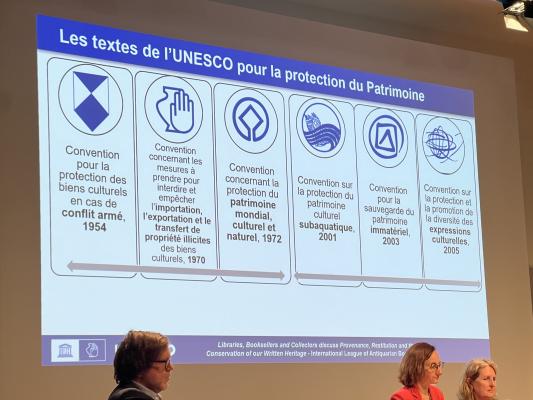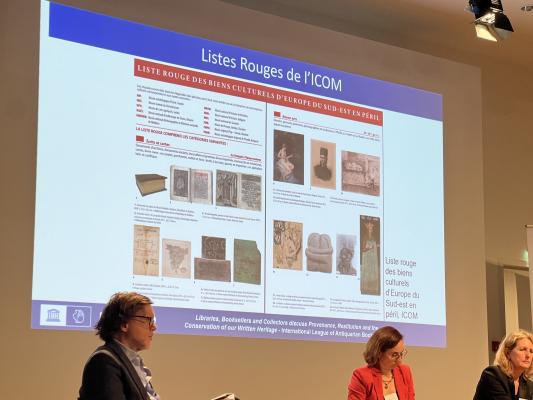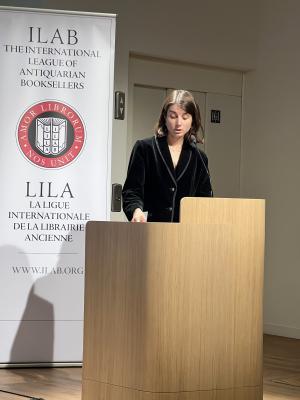News & Updates
Provenance, restitution and protection of written heritage: a conference to take stock
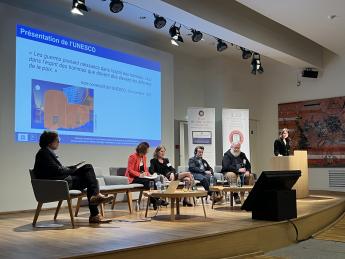
Published on 04 July 2024, by Léopold Vassy
On 12 June, the day before the 40th Salon du Livre Rare et des Arts Graphiques, an international symposium was held at the INHA on the thorny issue of the provenance of written heritage.
Amor Librorum Nos Unit ("the love of books unites us"). This is the motto of ILAB, the International League of Antiquarian Booksellers, which organised a conference at the INHA, moderated by Nicolas Malais, bookseller and doctor of French language and literature. The organisation brings together more than 1,600 bookshops and booksellers from 38 countries.
It held a conference on 12 June to encourage dialogue between institutions and booksellers on the new obligations in terms of provenance. The theme of this conference is an opportunity for these professionals, who are at a disadvantage because of the increased demands placed on them and for which they are not yet sufficiently trained.
With this in mind, work has been underway for several months with the Syndicat National de la Librairie Ancienne et Moderne (SLAM) and the Ministry of Culture to draw up a guide to good practice. The aim of this vade mecum, which is due to be published in France by the end of the year to enable booksellers to be better equipped to carry out traceability work by acquiring the right reflexes: spotting the points that should raise a red flag and, of course, knowing where and how to look.
In the same vein, a five-day training course has just been set up for new players in this profession, where the love of books is often the only guide to learning. These advances should enable booksellers to keep up with the times in terms of due diligence, and to write the new chapters in a market more than ever governed by the question of provenance.
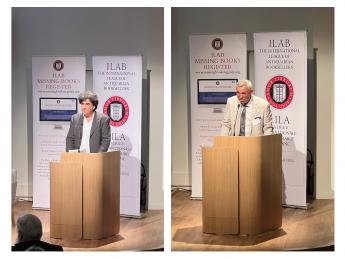
New requirements and day-to-day realities
In the history of French libraries, attention to provenance has only emerged marginally, and then developed slowly. Jean-Marc Chatelain, director of the BnF's Rare Book Reserve, explains that this is mainly due to the longstanding predominance of the literary culture of the text. He goes on to say that it was not until the middle of the 20th century that a paradigm shift took place and people began to take a real interest in the history of book collections. However, the department he heads today is an exception: the question of provenance arose from the very beginning of the creation of this collection by the librarian Joseph Van Praet, at the end of the 18th century.
Although this general awareness came rather late, it is nonetheless fundamental. It guarantees an effective fight against the trafficking of cultural goods. Unfortunately, written heritage is no exception to this scourge. Generally speaking, as Ariane Adeline, bookseller, archivist and palaeographer, points out, "knowing whether an item has been sold legally is the very essence, the sine qua non of [our] work". But this undertaking is not without its problems, starting with the fragmentation of information, scattered across numerous collections, locations and databases. Bringing these together in a single portal would be a major step forward, saving time and boosting efficiency. It would also solve a recurring problem: knowing where to look. In addition to this dispersal of information, there is the question of the durability of access to these digitised tools, as illustrated again recently by the cyber-attack on the British Library.
Another key issue is the lack of harmonisation of rules at European level, which vary from country to country. In Italy, for example, the legislative fabric has evolved at a dizzying pace over the last ten years: keeping up with the state of positive law is no mean feat! The ILAB project, which aims to bring together all the regulations in force in a single database, meets a real need.
Another tricky point is the threshold above which an application for an export certificate is required. In France, this value threshold has been doubled for manuscripts and incunabula, from €1,500 to €3,000. However, this increase is still insufficient, not to mention the fact that the long-awaited certificate is sometimes issued after long delays, hampering the fluidity of transactions. Hence the need to strike a balance between market survival and legal and institutional requirements.
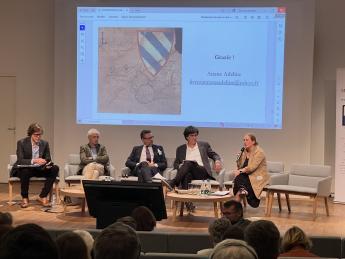
But the grass is even less green in neighbouring countries! In Germany, there is simply no threshold: any export of a manuscript requires this administrative formality to be completed in advance. Dr Markus Brandis, President of the German Antiquarian Booksellers' Association, points out: "The constraints imposed are getting harder and harder for us, and the taxes and levies are getting higher and higher... Today, fulfilling all these tasks is almost impossible." He also points to the Kafkaesque situation of the state's failure to compensate bona fide owners in the event of restitution. Enough to discourage booksellers!
In France, in 2022, the Conseil d'État handed down a decision allowing the holder in good faith to obtain compensation, albeit limited to 10% of the value of the item.
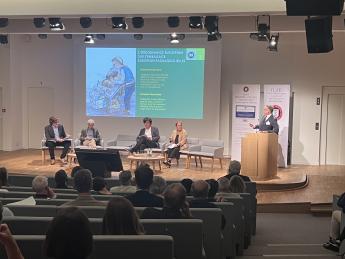
Provenance research and heritage preservation
The second part of the afternoon's debates underlined the importance of the book and manuscript market working with institutions to bring this work to fruition. It began with an account of one of the most notorious literary scandals of the twentieth century, that of the bibliographer and forger Thomas James Wise (1859-1937), who was unmasked thanks to the research of booksellers John Carter and Graham Pollard.
This was followed by a presentation of the exactions suffered by the written heritage during the rise of Nazism and the Second World War. The period 1933-1945 was not just a time of massive spoliation of works of art: Jewish libraries, as well as those of political opponents and Masonic lodges, were also affected. Estimates suggest that between 5 and 10 million books were translocated to France alone, in exchange for 100,000 works of art. To date, 2.4 million of these have been recovered. In France, a special unit was set up in 2001 to carry out research, which was stepped up in 2008 with the publication of a pioneering book: Livres pillés, lectures surveillées, by Martine Poulain (Gallimard).
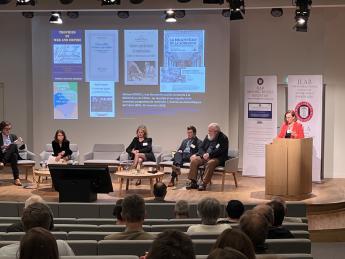
Louise Malecot, lawyer and associate specialist at UNESCO, warned of the boom in online sales, whose platforms are becoming major traffic channels. She also presented the many tools available to professionals to help them carry out the necessary due diligence: from the Interpol database listing stolen objects to the ICOM red list, listing the types of goods particularly exposed to trafficking, via the Missing Books Register (ILAB) and the Virtual Museum of Stolen Objects, due to open in 2025.
Finally, to close the last chapter of the symposium, Colonel Hubert Percie du Sert, Director of the Office Central de Lutte Contre le Trafic des Biens Culturels (OCBC) (Central Office for Combating Trafficking in Cultural Goods), reminded participants that vigilance is essential: books are a prime target for networks of traffickers, who use a variety of modus operandi. One recurring modus operandi is to visit major libraries to consult works, remove pages and replace them with facsimiles. The originals are then sold on the foreign market. To counter this type of abuse and increase its effectiveness, the OCBC developed ARTEFACT earlier this year. This is a tool that uses artificial intelligence to scroll through numerous resale sites and spot goods likely to be of illegal origin.
It was also an opportunity to reassure players concerned about the numerous due diligences required. The provenance requirements are not intended to turn booksellers into veritable researchers. Of course, as one audited bookseller rightly points out: "Nine times out of ten, it's impossible to prove anything. However, as the saying goes, "no one is obliged to do the impossible": this is an obligation of means, not of result.
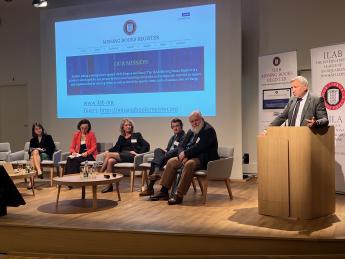
To know more:
The ILAB Missing Book Register:
https://missingbooksregister.o...
The SLAM Training Institute
https://slamlivrerare.org/institut-slam
This article was published with the permission of Gazette Drouot. It first appeared in La Gazette Drouot No 27, 5 July 2024.
Copyright for all images with Angelika Elstner, ILAB.
The images here have been added by the ILAB Website editor, only one image was published in the original article in Gazette Drouot.
The English translation was done by Angelika Elstner, ILAB. The original article was published only in French.

